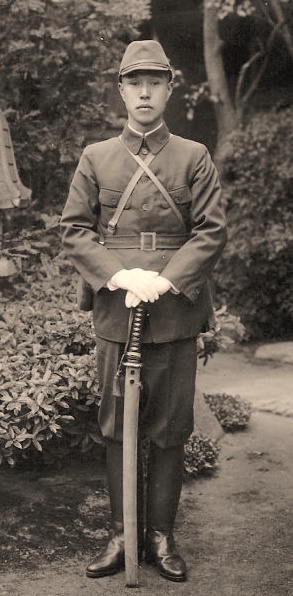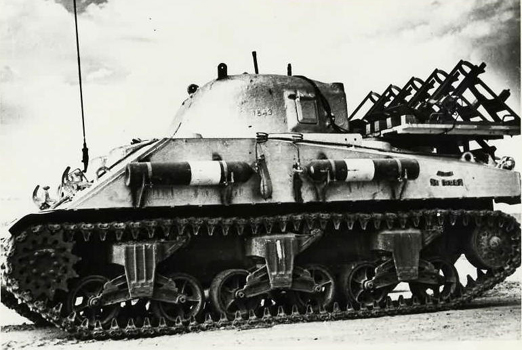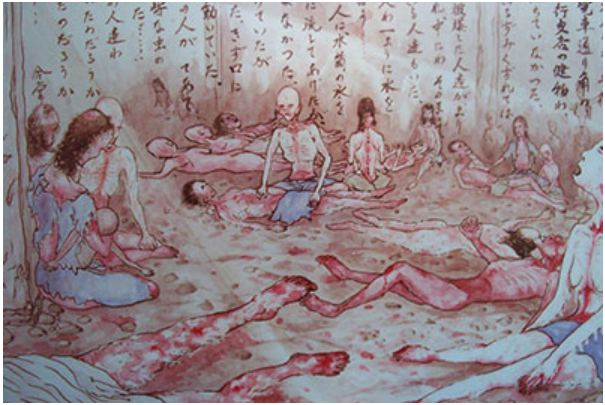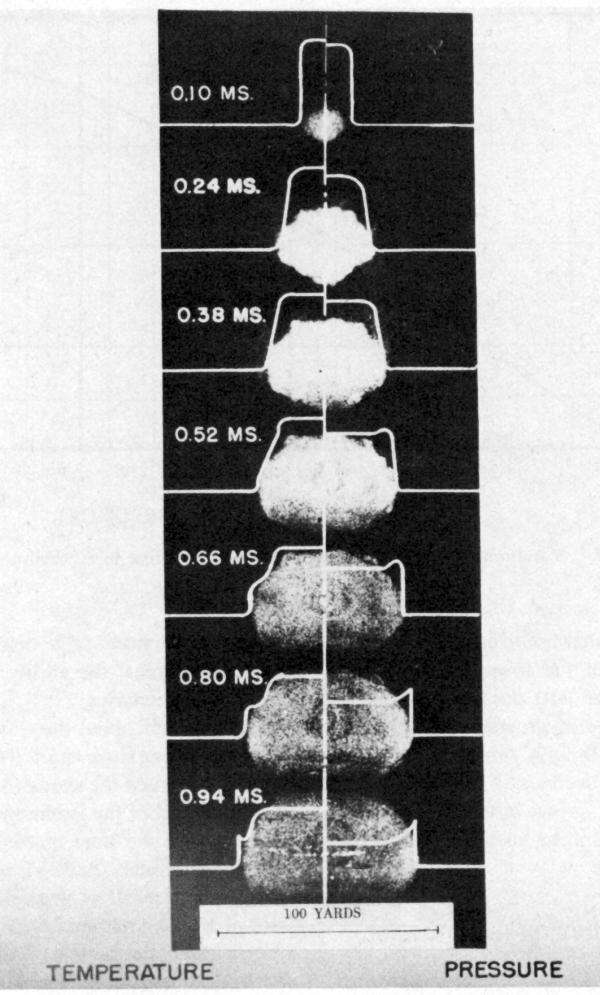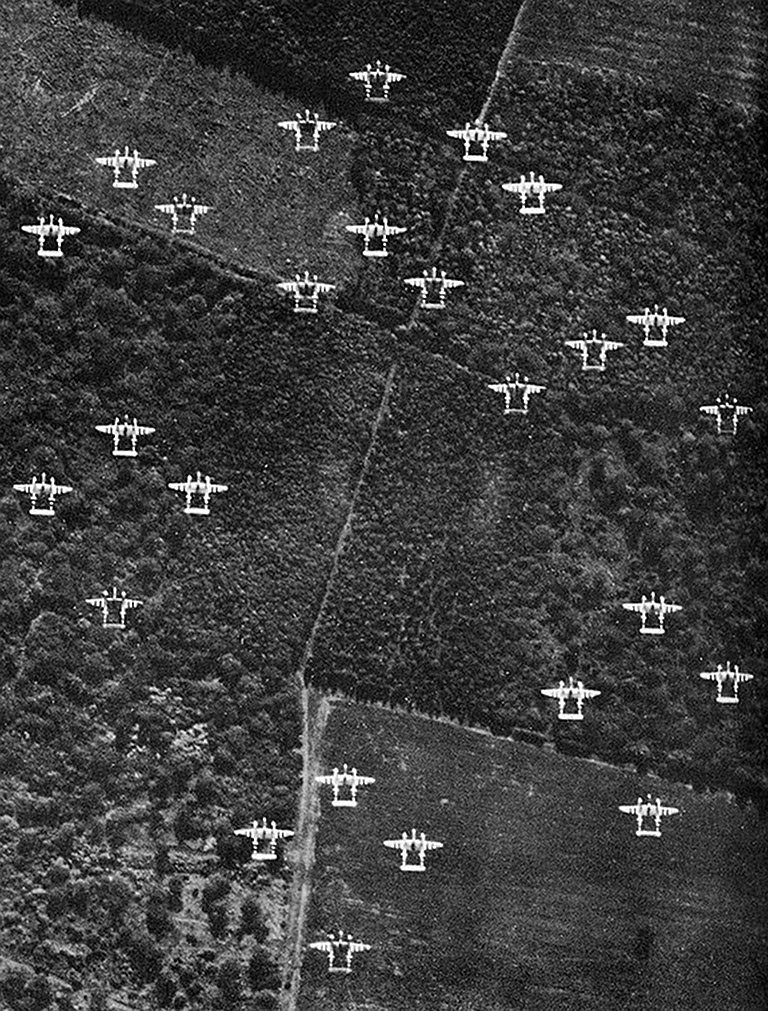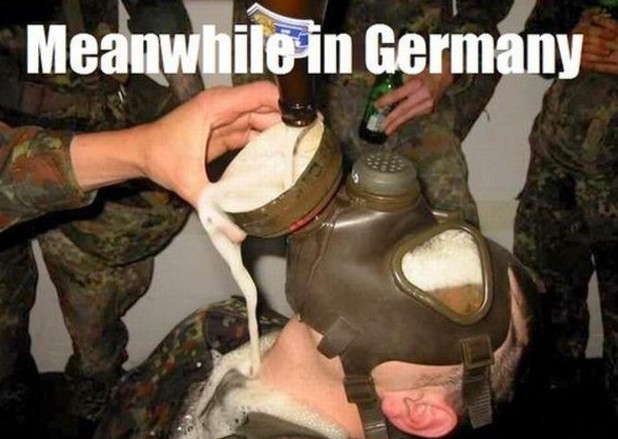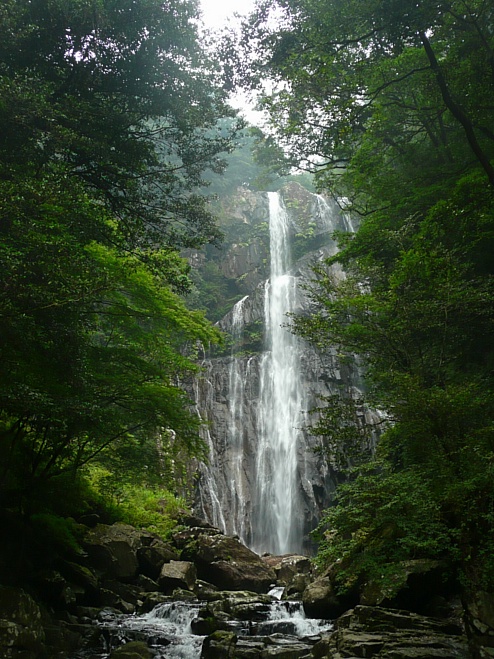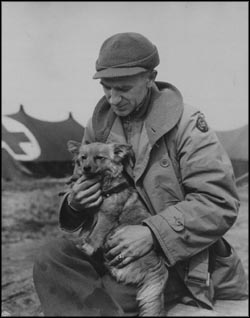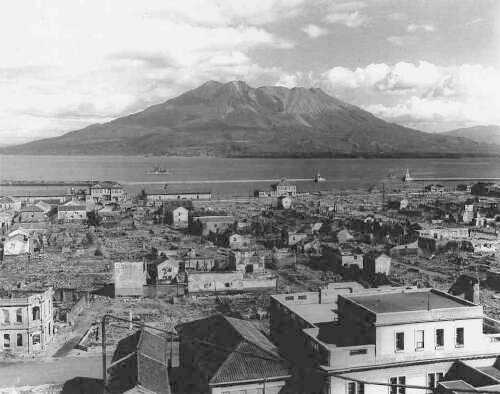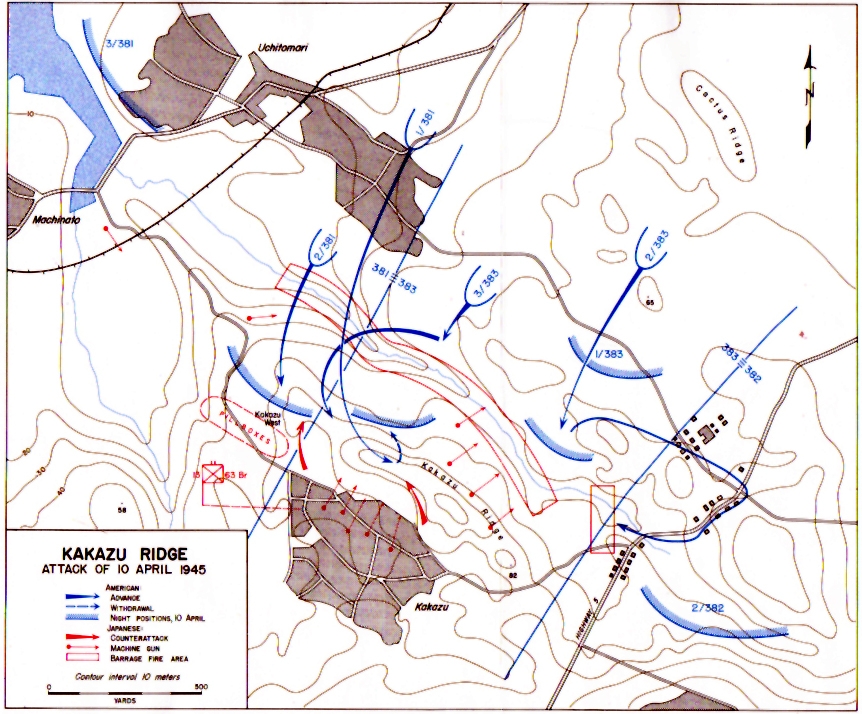The days were finally starting to get a little longer. As the gray sky started to lighten we moved out past American front lines, climbing down a ways to cross a short flat. It was open rocky terrain and everyone felt self-conscious in our fashion ensembles of wet dark green.
The company advanced slowly in one double line up to the next hill, across the valley American troops had been watching for so many days. At the base three patrols split off, one to either side and the third moving up to the peak. The patrol I was with advanced cautiously around the right side of the hilltop. Just over the crest we found about a dozen shallow fighting holes. Abandoned shovels, packs, and a few rifles were left there in and around the holes. Also in the holes were three dead bodies.
It looked like the Japanese had moved up to that line the day before, or the previous night, and made a temporary fighting line. There was no fighting so the soldiers there had died of existing injuries. Outwardly they looked bloated, as if they’d been dead for days. A few odd large sores were visible on the head and hands of a couple of them. The private next to me tipped the helmet off one with the point of his bayonet, and clumps of thin dark hair came off with it.
Our senior sergeant growled out a quiet reminder about booby traps, and we left the bodies and materiel there for others to clean up. We advanced slowly through the rocks and leafless brush down the back slope of the hill. Over the next four hundred yards we found six more bodies, soldiers in ragged uniforms, some with whole limbs wrapped in dirty bandages. Most looked like they collapsed while crawling on all fours, away from our lines.
We had gotten ahead of the center patrol, and it was there from our left that one live solider came stumbling toward us. He moved out from behind the dark boulder he’d been leaning on in a staggering half-awake walk. His pathetic form did not carry a gun, and no one fired at him. His uniform was dirty like the others, but straight and neat, topped with a sharply creased brown cap. He had been their commander.
The young officer raised his sword with one wavering arm. One could see from twenty feet away that it was a cheap stamped steel model. The Japanese were mass-producing them for every new officer to make him feel like part of the ‘warrior elite.’ His jaw fell and the sores in this warrior’s cheeks opened to expose the tortured flesh inside his mouth. He attempted to yell but only made a raspy mewl. He was almost upon our left column.
The point man on that side froze, horrified and mesmerized by the almost inhuman apparition. At the last second he raised the butt of his rifle and deflected the sword’s feeble blow. The imitation samurai blade was slowly raised again, and a Thompson barked out a long burst. The second man in the patrol line put his slugs all clean through the officer’s wrecked body. That lifeless body fell at once into a disorganized heap of parts, barely recognizable as a human corpse.
